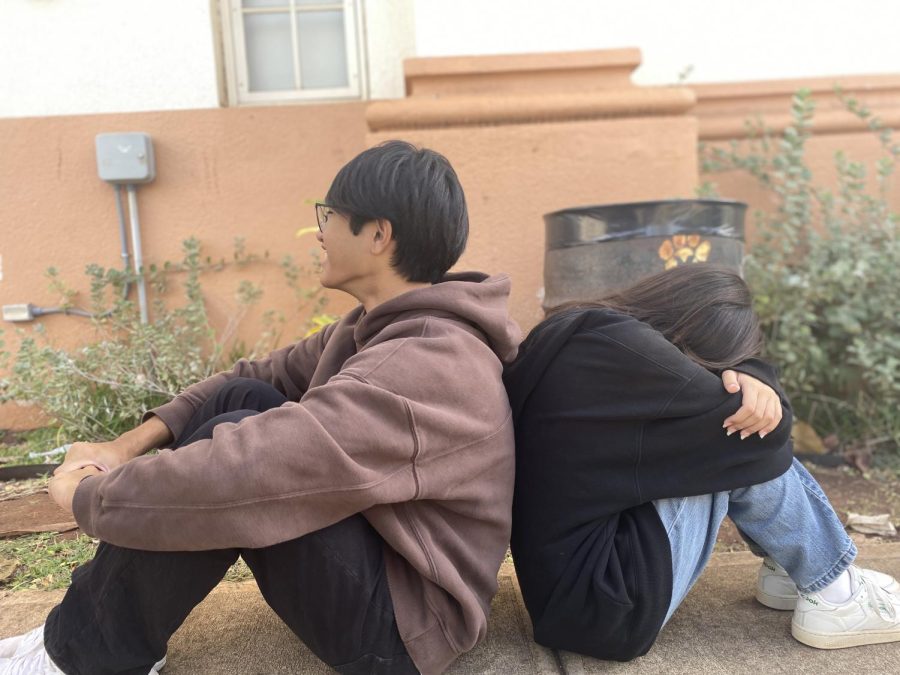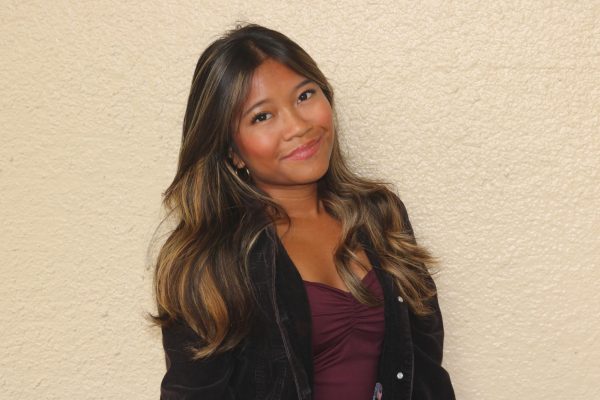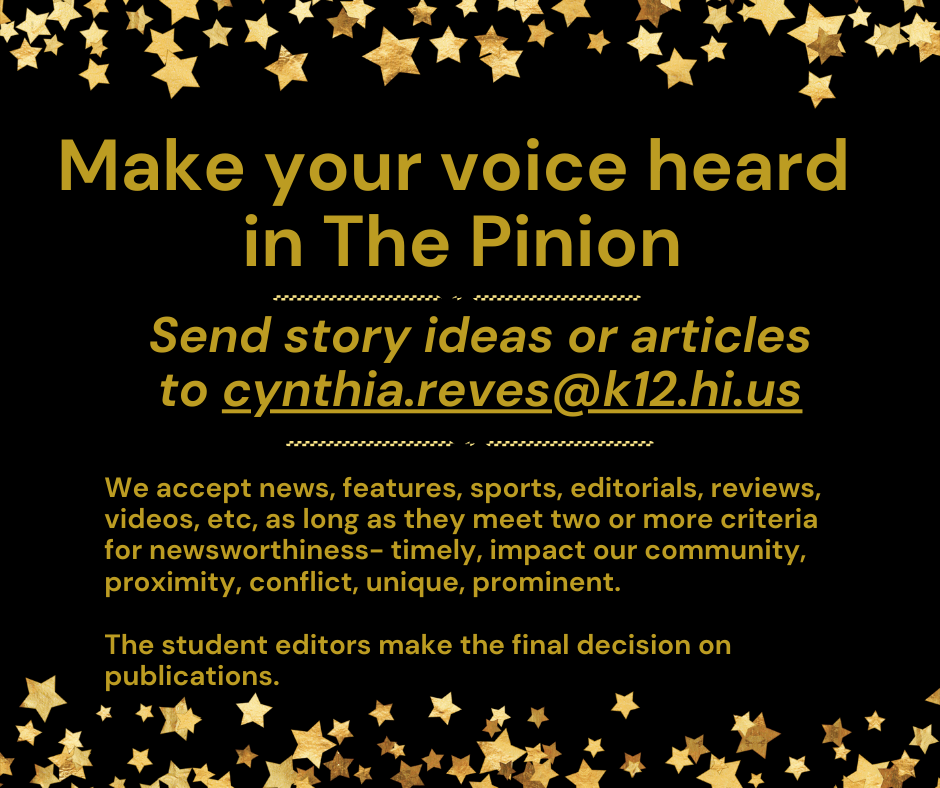Growing Up With Toxic Relationships
By jacky oasay
Students Tiger Le and Chloe Cunningham modeling what they believe a toxic relationship looks like.
December 8, 2022
I grew up in a world where serial killers and stalkers are ideal boyfriends. Not in real life, of course. I watch countless movies and TV shows and hardly any of them have good examples of relationships. Due to that, relationships are a struggle for me. Trying to picture healthy romantic relationships is like drawing something I’ve never seen before.
The worst part is, I am not alone. Media that involves abusive relationships are catered mostly towards teenagers. For example, movies like “Twilight” and “The Kissing Booth” have a fanbase filled with teenage girls. Most of this media involves unrealistic clichés such as forbidden love and couples that fight because of “passion.” These TV shows and movies often hide toxic traits like love-bombing, obsession, manipulation, and gaslighting to make the audience feel like the couple on screen is in love.
The “Twilight” saga offered those my age a vampire and human romance fantasy that involved obsessiveness and manipulation—but that’s okay, right? Because Edward is hot and sparkles in sunlight. Even though he likes to break into her house and watch her sleep, it’s okay because that’s romantic. Toxic traits like these are often masked by attractiveness. The beautiful girl next door could be emotionally abusive and the most handsome guy out there could be the most manipulative.
Something that has stuck with me from this media diet is the idea that love is painful. Love is fighting until it gets violent, crying every night because they won’t apologize, and just dealing with pain because you don’t think you’ll ever be happier. The HBO show, “Euphoria”, has showcased this perfectly. Cassie claims that, “she will never, ever be happier,” whilst being in a toxic relationship with her best friend’s abuser, Nate Jacobs.
These toxic relationships often get romanticized and interpreted in ignorant ways. Some examples are Nate and Maddy from “Euphoria”, Harley Quinn and Joker from “The Suicide Squad”, and Joe and Love from “You”. I’ve seen video edits and fan-pages for these couples. These people idealize their love and take it as passionate, romantic, and mysterious, when in reality they are turning a blind eye to victims that have experienced abuse.
According to Domestic Violence Services Inc., one in three young people will be in an abusive or unhealthy relationship. Even worse, only 33% of those in an abusive relationship will tell someone. These numbers are alarming, yet the media hasn’t done anything to prevent it. The targeted audience continues to glorify these relationships.
I have experienced and seen abusive relationships—the pain is far from ideal. Those who have experienced abuse may suffer from thoughts of suicide, eating disorders, and violent behavior. These consequences shouldn’t be romanticized either. Awareness should be spread in effective ways rather than being glorified. Abuse is a cycle that can be prevented. When watching media that involves abuse, it should be taken as a lesson, not a new fantasy. Relationships are never easy, but “painful” shouldn’t be used to describe something that is supposed to be healthy and fulfilling.






